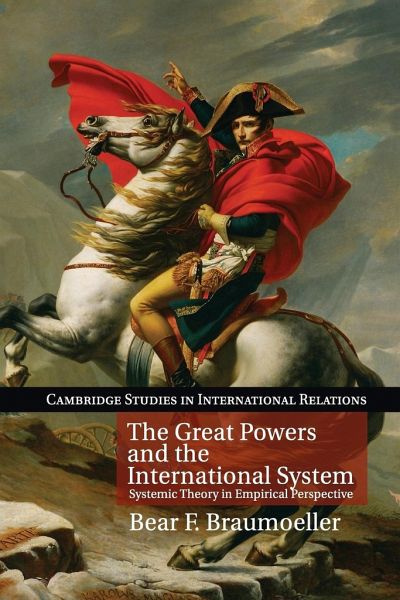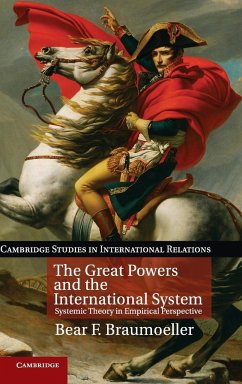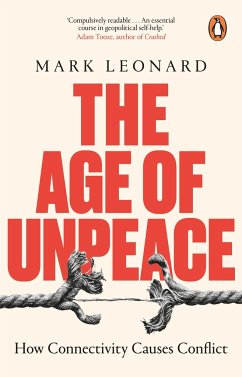
The Great Powers and the International System
Versandkostenfrei!
Versandfertig in 1-2 Wochen
35,99 €
inkl. MwSt.
Weitere Ausgaben:

PAYBACK Punkte
18 °P sammeln!
Systemic argument that is virtually unknown in international relations. This book describes and tests a fully systemic theory of international politics. Using statistics and diplomatic history, it traces statesmen's efforts to influence the broad contours of the international system within which they interact. Do great leaders make history? Or are they compelled to act by historical circumstance? This debate has remained unresolved since Thomas Carlyle and Karl Marx framed it in the mid-nineteenth century, yet implicit answers inform our policies and our views of history. In this book, Profess...
Systemic argument that is virtually unknown in international relations. This book describes and tests a fully systemic theory of international politics. Using statistics and diplomatic history, it traces statesmen's efforts to influence the broad contours of the international system within which they interact. Do great leaders make history? Or are they compelled to act by historical circumstance? This debate has remained unresolved since Thomas Carlyle and Karl Marx framed it in the mid-nineteenth century, yet implicit answers inform our policies and our views of history. In this book, Professor Bear F. Braumoeller argues persuasively that both perspectives are correct: leaders shape the main material and ideological forces of history that subsequently constrain and compel them. His studies of the Congress of Vienna, the interwar period, and the end of the Cold War illustrate this dynamic, and the data he marshals provide systematic evidence that leaders both shape and are constrained by the structure of the international system.














